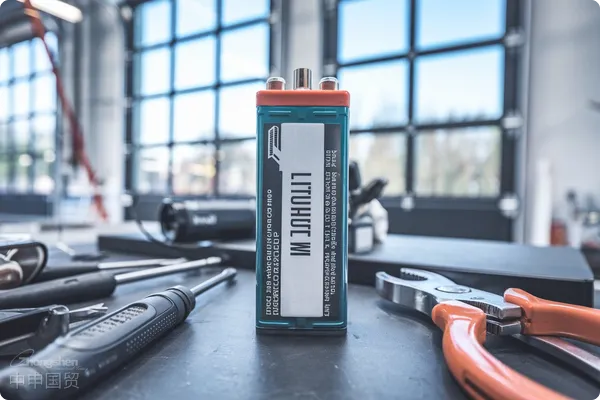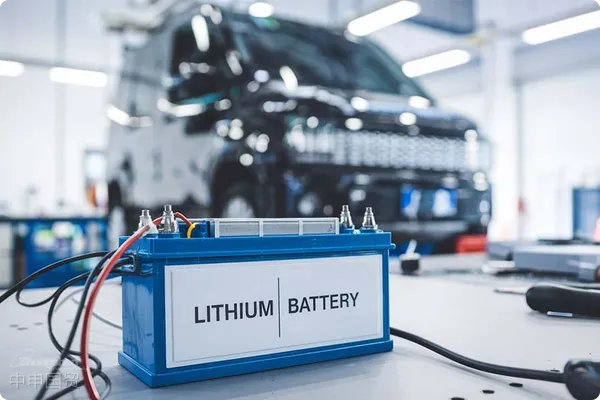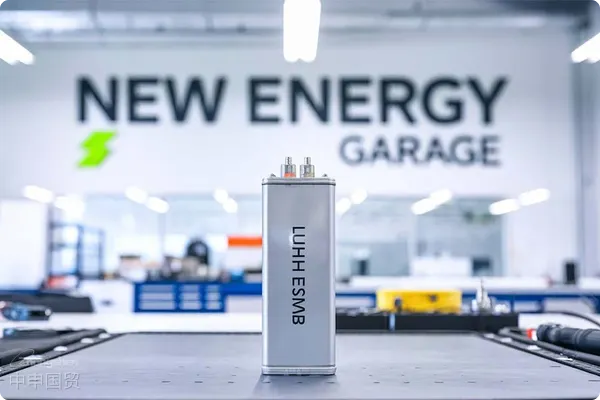- Shanghai Zhongshen International Trade Co., Ltd. - Two decades of trade agency expertise.
- Service Hotline: 139 1787 2118

Interested in lithium battery export trade? This article provides a one-stop solution! Detailed industry insights and operational procedures, along with key contract points and after-sales service tips, help you conduct business legally and compliantly while successfully mitigating risks! Master professional knowledge and trade secrets!
With the growing global demand for clean energy, lithium batteries, as a crucial energy storage device, are seeing increasingly active export trade. This article introduces how to act as an agent for lithium battery export trade, covering industry insights, operational procedures, contract key points, and precautions.
I. Industry Conditions
Market research data shows that the global lithium battery market has experienced rapid growth in recent years. It is expected that with the continuous development of electric vehicles, energy storage systems, and other fields, market demand for lithium batteries will maintain strong growth in the coming years.
In lithium battery export trade, China is one of the worlds largest producers and exporters. Chinese lithium battery products are highly competitive in quality, performance, and pricing, making them favored by global clients.
II. Operation Process
Finding Suppliers
As an agent, the first step is to find reliable lithium battery suppliers. Methods include attending industry exhibitions, online searches, and networking with peers. When selecting suppliers, consider the following factors:
Signing an agency contract
Signing an agency contract with the supplier is a crucial step in the export trade of lithium batteries. The agency contract should include the following basic information:
Handling export procedures
Exporting lithium batteries as an agent requires completing a series of export procedures, including:
Order tracking and after-sales service
During the agency export trade of lithium batteries, it is necessary to track order progress promptly to ensure timely delivery. At the same time, after-sales service should be provided to address any issues customers encounter during use.
III. Contract Key Points
Product description
The contract should provide a detailed description of the lithium battery products being represented, including model, specifications, performance parameters, packaging methods, etc.
Price and payment terms
Clearly specify the product price and payment terms, including unit price, total price, payment deadline, payment methods, etc.
Quality assurance
The supplier should guarantee that the provided lithium battery products comply with international standards and customer requirements, and clearly specify the quality assurance period and responsibilities in the contract.
Delivery method and timeline
Clearly specify the product delivery method and timeline, including delivery location, transportation method, delivery time, etc.
Clarify the liability for breach of contract of both parties, including the circumstances of breach of contract, the calculation method of liquidated damages, etc.
The contract should clearly define the responsibilities and resolution methods for both parties in case of contract breaches to protect the legitimate rights and interests of both parties.
Intellectual property protection
Clearly define the rights and obligations of both parties regarding intellectual property to prevent infringement.
Dispute resolution method
The contract should clearly specify dispute resolution methods, such as negotiation, arbitration, or litigation.
IV. Precautions
Understand relevant laws and regulations
Engaging in lithium battery export agency requires understanding relevant laws and regulations, including export license management, commodity inspection rules, and tariff policies, to ensure legal and compliant agency operations.
Pay attention to product quality and safety
Lithium batteries are classified as hazardous goods, requiring special attention to product quality and safety during export trade. Ensure products meet international standards and customer requirements to avoid returns or claims due to quality issues.
Monitor market trends
Stay updated on lithium battery market trends, understand market demand and price fluctuations, and adjust agency strategies promptly.
Build strong customer relationships
Establish strong customer relationships, promptly understand customer needs and feedback, provide high-quality services, and enhance customer satisfaction.
Strengthen Risk Management
Lithium battery export agency involves certain risks, such as market risks, credit risks, and exchange rate risks. Strengthen risk management, develop reasonable risk prevention measures, and minimize potential losses.
In summary, successful lithium battery export agency requires professional knowledge and experience, attention to market trends and legal changes, robust risk management, and strong customer relationships.
Related Recommendations
Category case
Contact Us
Email: service@sh-zhongshen.com
Related Recommendations
Contact via WeChat

? 2025. All Rights Reserved. Shanghai ICP No. 2023007705-2  PSB Record: Shanghai No.31011502009912
PSB Record: Shanghai No.31011502009912








